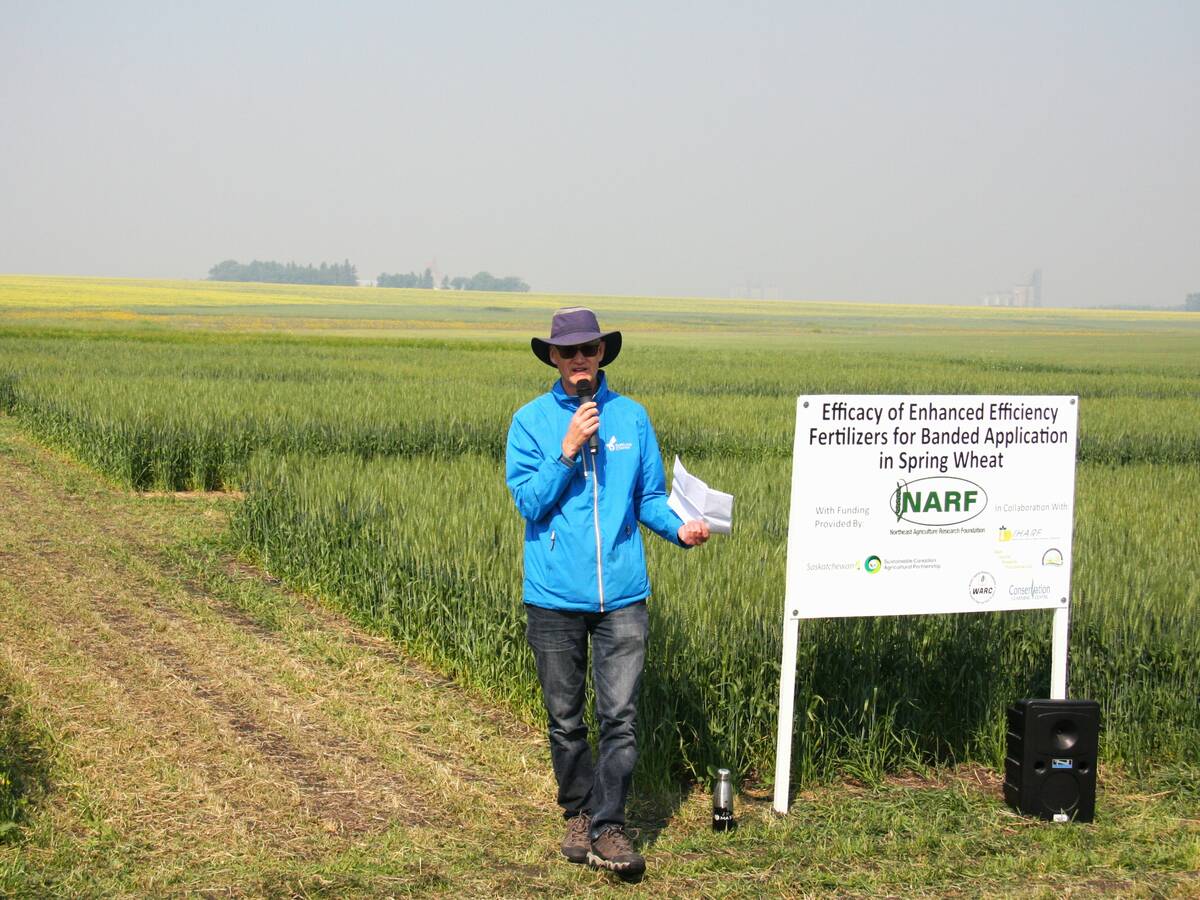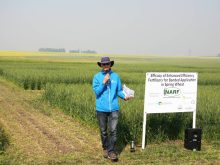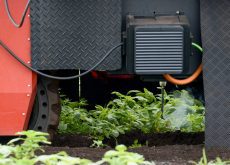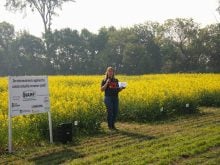In the second week of November, the Agri-food Innovation Council invited MP Warren Steinley to talk about agricultural research and innovation in Canada. During a webinar, Steinley was asked about the government’s funding priorities and how much it dedicates to climate change research within agriculture.
“I think this is an ideological position this government has. … The government seems to be ideologically tied to making sure that emissions is part of every grant. … We need to step away from that,” said Steinley, the MP from Regina-Lewvan and member of the House of Commons Standing Committee on Agriculture and Agri-Food.
“I believe there are a lot of things we have to tackle as a sector and it doesn’t all revolve around emissions.”
Read Also

Fertilizer method’s link to emissions studied
A researcher says others studying greenhouse gas emissions aren’t considering how the loss of nitrogen into the atmosphere correlates with fertilizer application or if there is an impact to yield.
In 2023, the federal and provincial governments signed a five-year, $3.5 billion funding agreement, the Sustainable Canadian Agricultural Partnership, which made climate change a research priority.
“This is why under (SCAP) a minimum of 30 per cent of the overall AgriScience Cluster costs must be geared towards activities that focus primarily on the environment — of which 15 per cent of the overall Cluster costs must address GHG emissions,” the feds said earlier this year in an email to the Western Producer.
For at least the last 12 months, multiple farm groups and producers have complained about the percentage of funding directed at climate change and the environment.
The over-arching concern is that spending research dollars on agricultural emissions takes money away from other priorities.
Serge Buy, AIC chief executive, said it is a challenge to link all funding to climate change projects.
“Sometimes you’re trying to make the application fit the request from the government on climate change, just because it won’t get funded if it doesn’t have something about climate change,” Buy said.
The government’s research priorities are one thing, but Steinley is also concerned that agricultural emissions receive too much attention.
Canada represents 1.5 percent of global emissions and agriculture produces 10 percent of national emissions.
“Most other jurisdictions, their agricultural emissions are at least 30 percent of their total,” said Steinley. “My problem … I think our producers have never gotten the credit for how much they’ve lowered their emissions.”
He also discussed the Pest Management Regulatory Agency, which is responsible for pesticide regulation. It has frequently been criticized for taking too long to evaluate crop protection products.
If the Conservatives form government after the next election, they may review the PMRA, Steinley said.
“One of the questions I’d have is should the PMRA be in Health Canada. The question is, where does the PMRA best fit (within) the governmental structure? That’s a discussion that needs to be had.”
Contact robert.arnason@producer.com


















